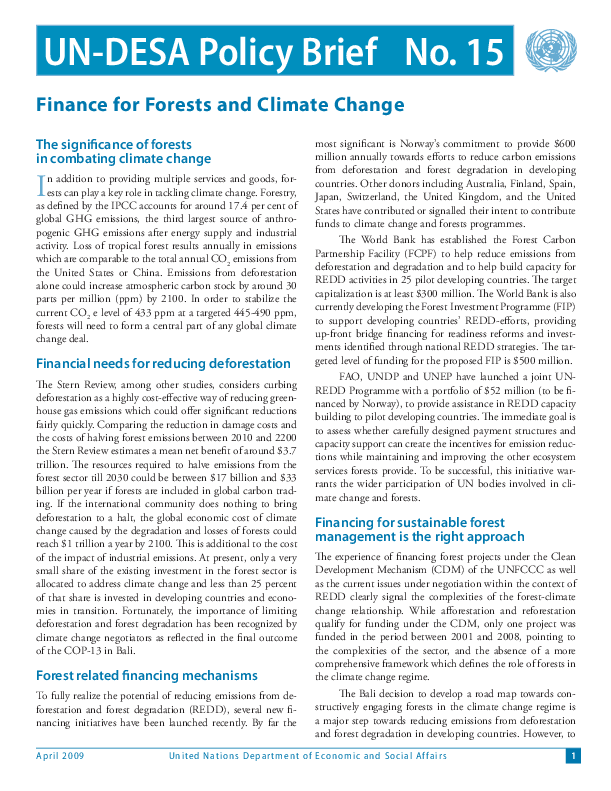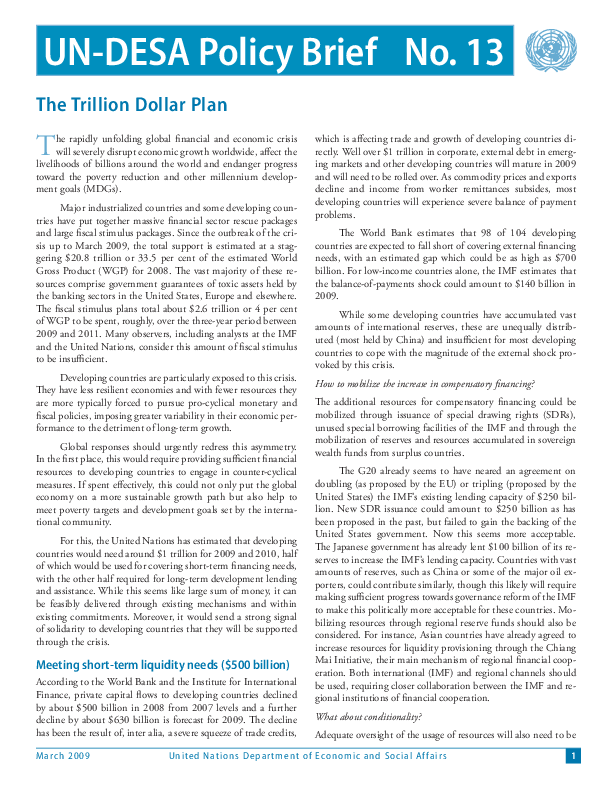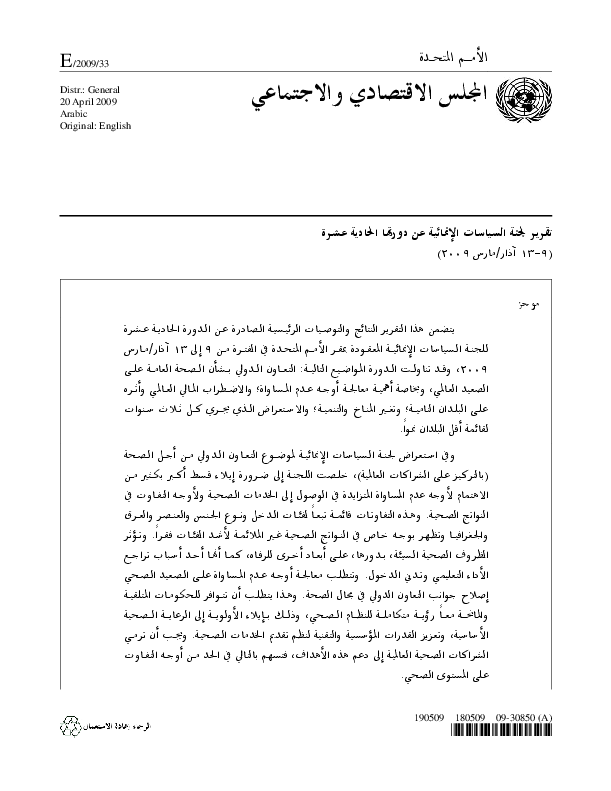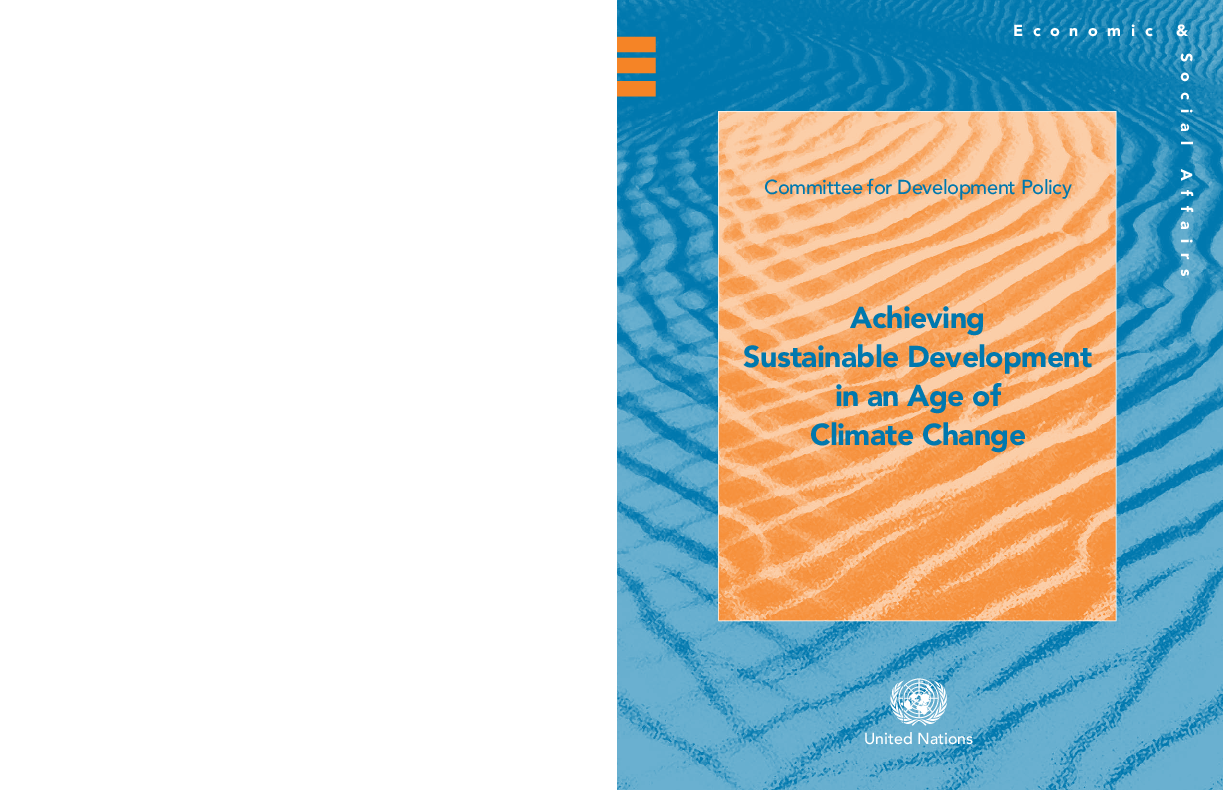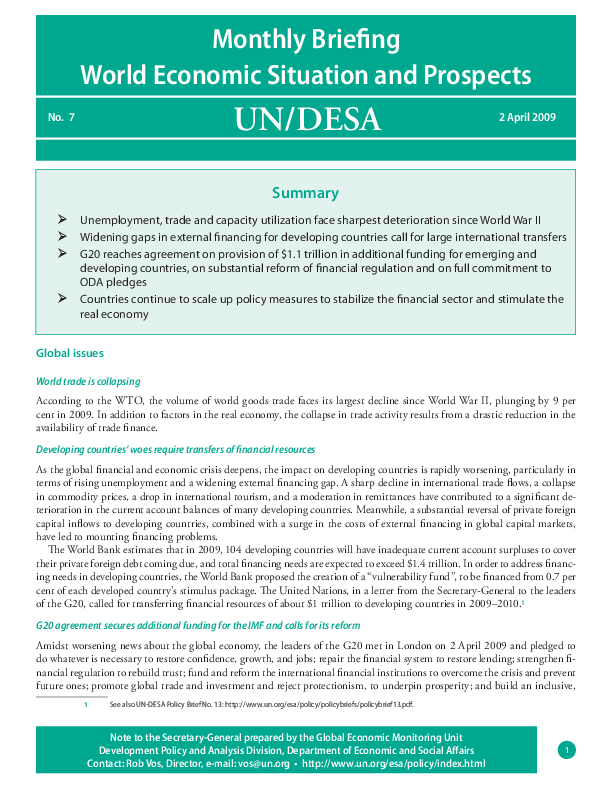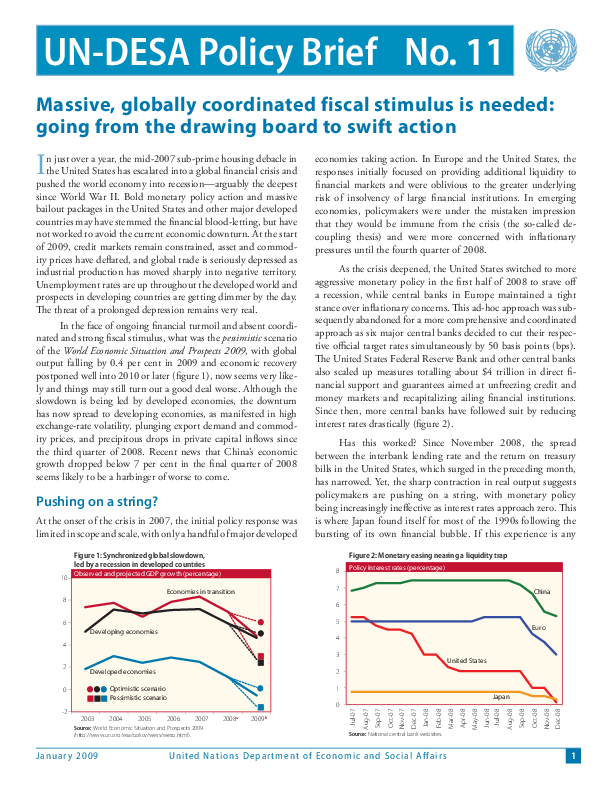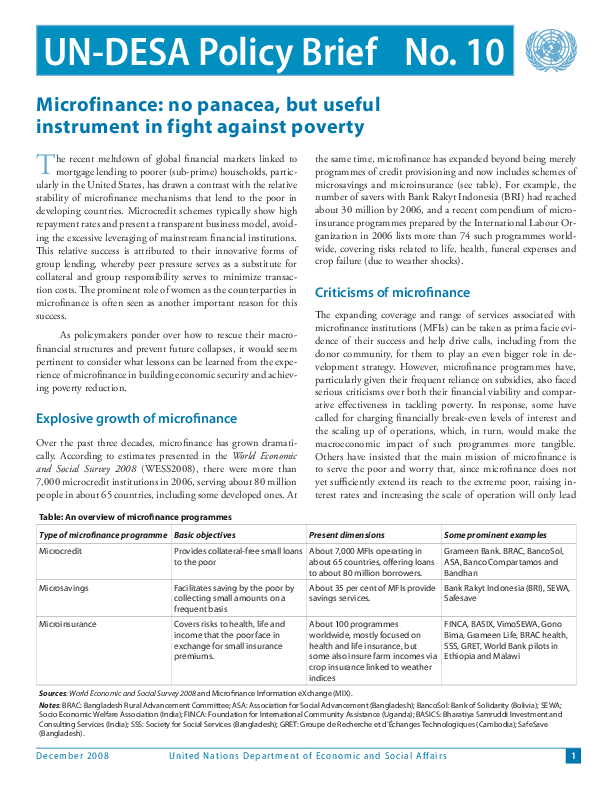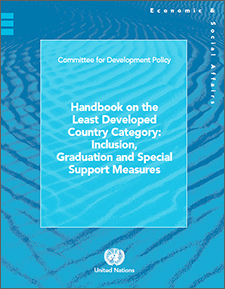Publications
Displaying 841 - 850 of 1100
عربي, 中文, English, Français, Русский, Español CDP excerpts on the report by theme
Monitoring the development progress of countries that are graduating and have graduated from the list of least developed countries ECOSOC resolution (E/RES/2009/35) on the Report of the Committee for Development Policy
English ECOSOC resolution (E/RES/2009/17) on on the Review of United Nations support for small island developing States
English 2009 CDP report, ECOSOC and GA resolutions
عربي, 中文, English,?Français, Русский, Español World Economic and Social Survey 2008: Overcoming Economic Insecurity,?Overview (E/2008/50)
عربي, 中文, English,?Français, Русский, Español World economic situation and prospects as of mid-2008 (E/2008/57)
عربي, 中文, English,?Français, Русский, Español 2008 Reports to the Economic and Social Council
 Welcome to the United Nations
Welcome to the United Nations
